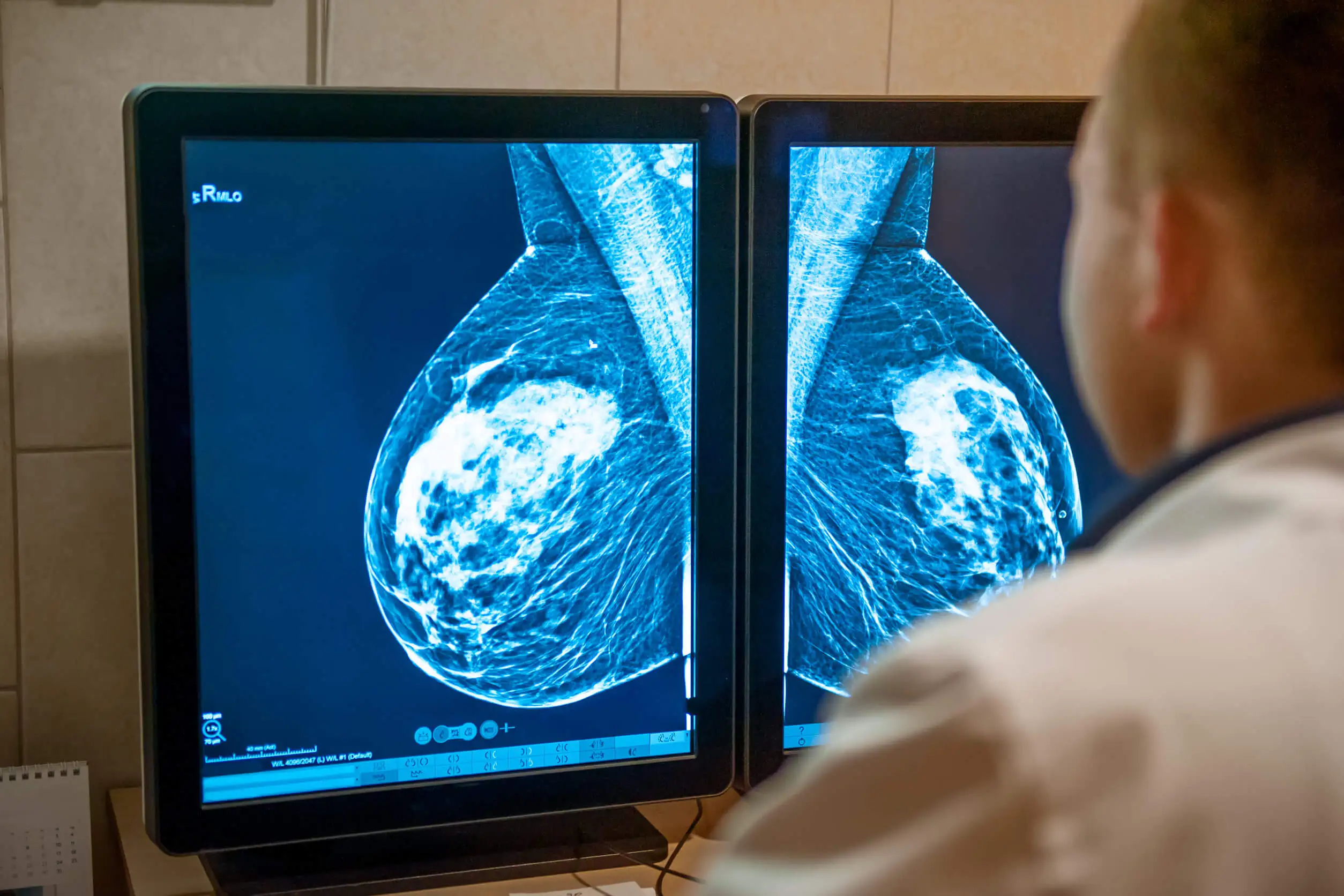Raquel Tells the Story of Her Breast Cancer Diagnosis

You could say that I was living a normal life until the summer of last year, when I received a breast cancer diagnosis. I had just turned thirty, but I felt younger than ever. After landing my job and financial stability, my life was all about working, going to the gym, going to parties, and traveling whenever possible. However, my outlook on life changed in August 2021 after being diagnosed with breast cancer.
After enjoying a vacation in Malaga, I resumed my work routine. Those days I felt more tired than usual, but I attributed the discomfort to post-holiday syndrome.
A couple of weeks went by and the feeling of exhaustion didn’t go away; on the contrary, it began to interrupt my working day. I asked for a medical check-up, but I never imagined I would hear the word “cancer”.
My name is Raquel and more than a year ago I was diagnosed with stage II breast cancer. Receiving this news at the age of 30 was devastating, but it changed the way I saw and lived my life. Although at first I was overcome with hopelessness, today I feel I am strong enough to fight the battle.
This is my story.
The breast cancer diagnosis process
As I mentioned, I requested a medical check-up because I began to feel a sense of exhaustion that intensified as the days went by. I had always been very active, so experiencing fatigue for so many days made me think that something else might be going on in my body. Unfortunately, it was.
After the typical routine tests and having enough reason for suspicion, the doctor suggested additional tests to determine if the source of the symptoms was cancer. Cancer! The mere possibility generated very strong anxiety and fear in me. Until those days, it was not something that crossed my mind.
On August 20, 2021, I finally received the diagnosis: stage II breast cancer. But what did this mean, was it serious, did I have little time left? These and many other doubts began to invade my thoughts. The shock of the news was devastating, and I was in shock.
The doctor explained to me that I had stage II breast cancer. They discovered this after finding two tumors in the right breast and three tumors involving the axillary lymph nodes in the same area. It’s difficult to describe everything I felt at that moment; in a few words, my world came crashing down.
Until the days before the diagnosis, I felt like I wanted to eat the world; I worked to travel, enjoy my friendships and accomplish goals that made me feel successful. Now my life had changed in a radical way and I had to start a battle against the disease.

Read about: 5 Rare Signs of Breast Cancer
The treatment
Just hearing that you have cancer is heartbreaking. I think most of us immediately associate this term with death. And rightly so; we have seen this disease – in all its forms – claim the lives of thousands of people. Will I become a another statistic? I wondered.
But after an extensive conversation with the doctor, whom I thank for his professionalism and for making me understand that all was not lost, I was able to change my mind about the disease. Resilience – which was always part of me – helped me chart a new goal: to beat the disease.
Now, I don’t want you to think it’s as easy as saying “I will beat this” or “I will win the battle against the disease.” It’s a very difficult process that comes with ups and downs, with moments of hope, but also days when you want to throw in the towel.
Due to the stage of the cancer was in, the possible treatment to save my life was a mastectomy (a surgery to remove the breast), followed by radiotherapy to fight the tumors near the axillary lymph nodes.
To be more exact, the doctors had to remove the inside of my breast and my nipple. After this, radiation treatment was started, and finally, reconstructive surgery was performed. After recovering from this, I had to undergo more than four months of chemotherapy and one more surgery.
Right now, I am still undergoing treatment. The doctor’s prognosis is encouraging, but I must take medication for the next 10 years. The idea is to prevent the cancer from coming back, although it’s a possibility that can’t be ruled out.
My days became opportunities after a breast cancer diagnosis
I must confess that before the breast cancer diagnosis, I led a somewhat “self-demanding” life. I used to think that things had to happen just as I planned them, and didn’t realize how frustrated I was with wanting to achieve a “perfect life”. Anxiety about the future was constantly invading me, and I would focus all my energy on making it the way I was planning it.
Of course, everything that happened in dealing with this disease changed the way I thought, felt, and lived my life. In a matter of weeks, I had to watch my life change dramatically; this time going through something I could not change.
It was no longer about “being more productive”, “making money” or “being the best at my job”. Now it all came down to struggling to survive. However, in the midst of it all, this helped me recognize important things that I was ignoring in my “normalcy.”
As cliché as it sounds, the idea that you may die soon reconnects you with the true meaning of life. You begin to feel that every day is an opportunity and you can’t squander it. A hug from mom, sharing with family, and even a simple coffee with friends become extremely valuable things.
And when the outlook is so discouraging, the support and love of the people closest to you become a driving force. Thanks to them, today I feel strong, inspired, and motivated to move forward.

The battle continues
Now that I can put myself in the shoes of a person who receives a diagnosis of cancer, not just breast cancer, but any other cancer, I want to be supportive. I know how difficult it is to process this news, and especially to go through the process involved.
It’s not an easy battle, it’s true. However, how you approach the whole process makes all the difference. It requires a change in mindset. Also, it’s about learning more about the disease and visualizing that you are going to make it. Medical and family support is key, so don’t hesitate to take refuge in it.
You may also like to read: Types of Surgery in Breast Cancer Treatment
United, we can confront breast cancer
Taking advantage of the fact that we are in the Month of the Fight against Breast Cancer, I want to say goodbye with a simple message: “If we all unite, we will achieve enough strength to beat this disease”. And beyond the moral support that the loved one needs after receiving the diagnosis, as a society we can also join the fight.
How? There are many ways to contribute. Getting involved in breast cancer campaigns, supporting foundations, lobbying to improve public policies that benefit cancer patients, spreading reliable information about the disease, sending messages of support… These are mall actions that can make a world of difference for us patients.
All cited sources were thoroughly reviewed by our team to ensure their quality, reliability, currency, and validity. The bibliography of this article was considered reliable and of academic or scientific accuracy.
- Alkabban FM, Ferguson T. Breast Cancer. [Updated 2021 Aug 7]. In: StatPearls [Internet]. Treasure Island (FL): StatPearls Publishing; 2022 Jan-. Available from: https://www.ncbi.nlm.nih.gov/books/NBK482286/
- Regan JP, Casaubon JT. Breast Reconstruction. [Updated 2022 Jul 9]. In: StatPearls [Internet]. Treasure Island (FL): StatPearls Publishing; 2022 Jan-. Available from: https://www.ncbi.nlm.nih.gov/books/NBK470317/
- Su JA, Yeh DC, Chang CC, Lin TC, Lai CH, Hu PY, Ho YF, Chen VC, Wang TN, Gossop M. Depression and family support in breast cancer patients. Neuropsychiatr Dis Treat. 2017 Sep 13;13:2389-2396. doi: 10.2147/NDT.S135624. PMID: 28979126; PMCID: PMC5602463.
This text is provided for informational purposes only and does not replace consultation with a professional. If in doubt, consult your specialist.








